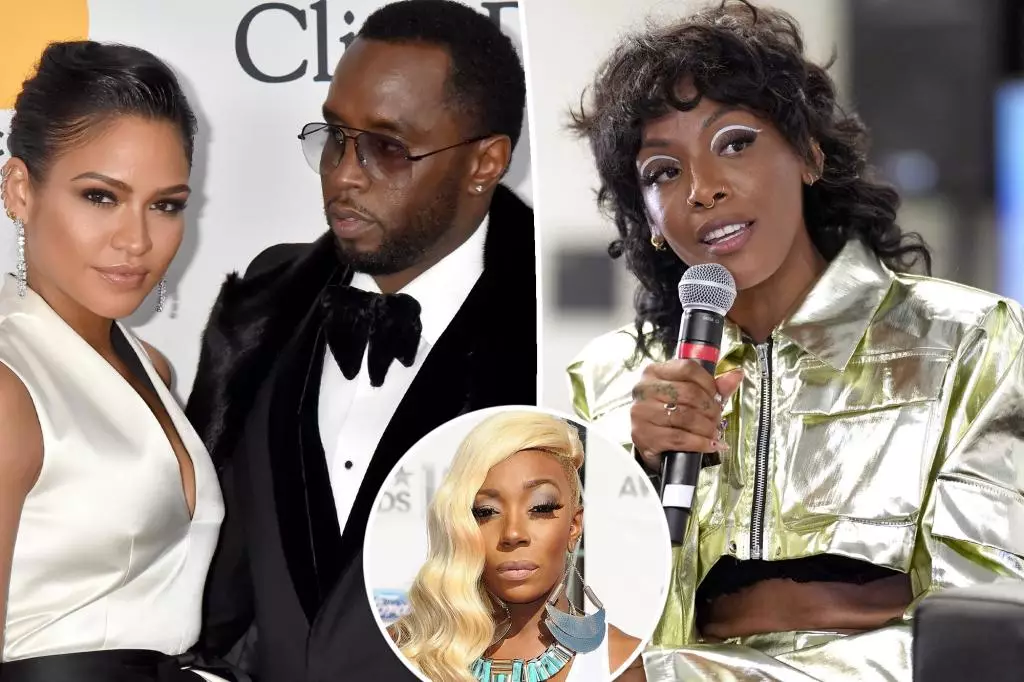In the realm of celebrity culture, accusations can swirl around individuals like autumn leaves in a gusting wind. Recent developments involving Sean “Diddy” Combs and former Dirty Money member Kalenna Harper add an unsettling layer to this narrative. Dawn Richards, another former member of Danity Kane, has initiated a lawsuit against Diddy, alleging sexual assault and other forms of abuse, a move that has sent shockwaves through the entertainment industry. Harper, however, has swiftly distanced herself from the contentious situation, emphasizing that her personal experiences do not align with Richards’ claims.
On a Friday that reverberated with implications, Kalenna Harper issued a public statement firmly denying any witnessing of abusive behavior from Diddy towards his ex-girlfriend Cassie Ventura. As she articulately affirmed, “While I fully respect Dawn’s right to recount her experiences, I want to emphasize that her account reflects her personal perspective.” Harper’s message serves as a critical reminder of how subjective experiences can diverge widely, even among individuals who might share the same profession or environment.
In her statement, Harper further elaborated that much of what Richards described in her lawsuit had no resonance with her own experiences. Her articulation unveils a deep-seated complexity within the unfolding narrative, suggesting that personal truths can vastly differ even when individuals inhabit similar spaces. This dissonance raises many questions about the nature of testimonial truth in cases of accusation—how do we navigate personal interpretations when they collide like tectonic plates?
Richard’s claims are nothing short of alarming. In her suit, she purports to have witnessed various physical assaults, including instances of Diddy allegedly throwing objects, making threats, and physically harming Cassie. These allegations paint a harrowing picture of domestic violence and abuse, an issue that continues to plague many high-profile relationships. Such serious claims, if substantiated, could not only tarnish Diddy’s legacy but also highlight systemic issues in the entertainment industry regarding accountability and protection for victims.
Richards asserts that she and Harper once encouraged Cassie to leave Diddy’s grasp, reflecting a troubling dynamic where friends become spectators of toxic relationships. The chilling remark Diddy allegedly made—“Y’all bitches don’t get in my relationship”—sheds light on the possessive and toxic control that often characterizes abusive scenarios. Harper’s stance deviates from this witness account, opening a fissure in the narrative that leaves room for scrutiny and debate.
Richard’s lawsuit marks only the latest in a series of legal battles faced by Diddy. As allegations mount, one has to consider the ripple effects on celebrity culture at large. The dynamics of fame often skew reality, allowing toxic behaviors to fester without repercussions. High-profile individuals are frequently shielded from accountability due to their stature, leading to a cultural complacency regarding abuses of power.
Dawn Richards is not the only person stepping forward; numerous other individuals have also come forth to accuse Diddy of sexual misconduct, each new revelation adding weight to an already heavy narrative. The multiplicity of voices calling for awareness and justice not only aims to challenge Diddy but also compels society to grapple with its attitudes toward celebrity and accountability.
The media’s role in amplifying these stories cannot be understated. As outlets dissect and disseminate the particulars of Richards’ lawsuit, the ongoing confrontation with issues of abuse and power dynamics resonates broadly. Public discourse surrounding these narratives may help normalize discussions around uncomfortable subjects like domestic violence and sexual assault, pushing us towards collective social evolution.
Kalenna Harper’s distinct separation from Richards’ claims underscores an essential truth: personal experiences can be profoundly varied, even among those witnessing the same events. As this saga unravels, it unveils the complexities of human interactions in the face of fame, asserting that truth is often multifaceted. In a world where the spotlight can obscure genuine narratives, may we strive for clarity, empathy, and justice for all involved.

